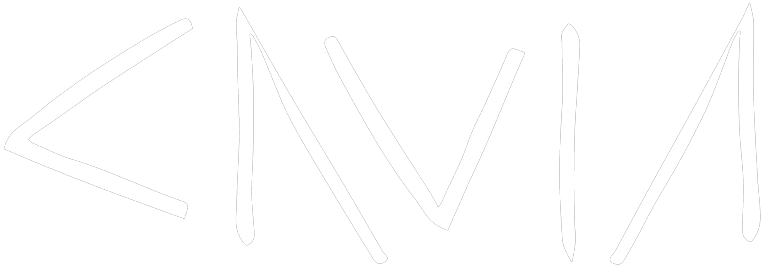December
| Vr. 6 | : On the Move: Moving Image Makers Collective |
| Za. 7 |
: Rafiki |
| Do. 12 |
: Rafiki |
| Vr. 13 |
: Winter Bees: The Cinema of Josephine Ahnelt |
| Za. 14 | : Kurdish Lens - Rojava support screening |
| Za. 14 |
: Let’s go underground! Cult films by Babeth Mondini-VanLoo |
| Zo. 15 |
: Estado Impuro |
| Do. 19 |
: Clásicos Latinoamericanos: Wara Wara |
Vrijdag 6 december, 20:30
SPECIAL
On the Move: Moving Image Makers Collective + Q&A
Diverse regisseurs | 2019 | Schotland/GB | 71’ | no subs
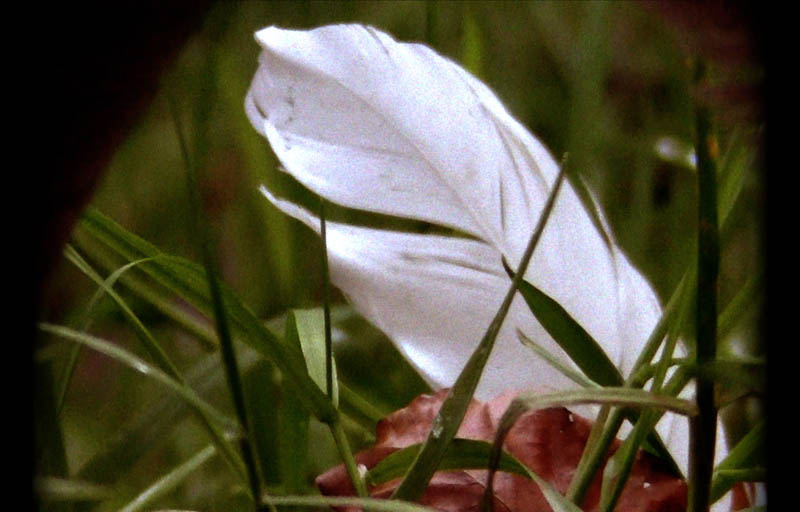
NL On the Move is een rondtrekkend programma van experimentele films van het Moving Image Makers Collective uit het Schotse grensgebied. Het programma, het eerste dat compleet door MIMC zelf is gecureerd, handelt over concepten van interventie – met hulp van bewegend beeld – tussen jou en je directe omgeving. Door voorzichtige maar assertieve bewegingen vinden deze films ritme, beweging en muziek in gevonden objecten en verschijningen. Gevonden stilte zelfs. Elke film behandelt op zijn eigen manier je persoonlijke omgeving als een plek voor creatieve mogelijkheden. Een plek die je laat nadenken over de onderhandeling met de wereld om je heen en basis vindt voor alle esthetische reacties op deze wereld.
Q&A met filmmaker Jason Mozes, lid van het MMIC.
EN On the Move is an on-tour program of experimental film from the Scottish Borders-based Moving Image Makers Collective. As MIMC’s first self-curated programme of films, On the Move speaks to notions of intervening – with assistance from the moving image – on one’s immediate environment. By turns tentative and assertive, these works find rhythm, music and movement in acquired objects, found phenomena and even silence. Each in its own way argues the case for one’s environment as a conditioning device and as a space for creative possibilities where one begins to think about negotiating the world and finds the basis for any aesthetic response to it.
Q&A with Jason Moyes, filmmaker and member of the MMIC.
Zaterdag 7 december, 20:30
Donderdag 12 december, 20:30
CONTEMPORARY
Rafiki
Wanuri Kahiu | 2018 | Kenia | 83’ | EN subs
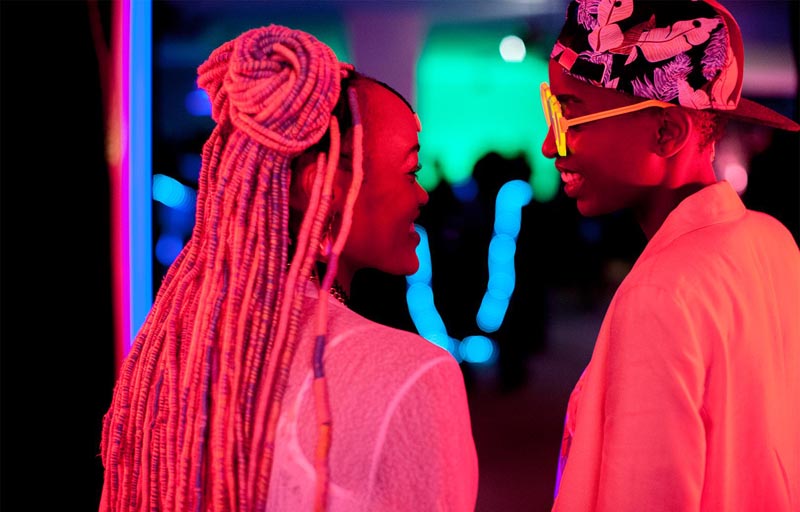
NL 'Goede Keniaanse meisjes worden goede Keniaanse echtgenotes', hebben Kena en Ziki hun hele leven gehoord. En dat het krijgen van een hypotheek de droom is van elke normale Keniaan. Maar Kena en Ziki willen meer. Ze willen avontuur en echte liefde, geen saai bestaan als een gehoorzame vrouw in de buitenwijken. Pas als ze verliefd op elkaar worden, ontdekken ze hoe conservatief de wereld om hen heen is. De relatie tussen deze twee jonge vrouwen vormt het warme, kloppende hart van deze sprankelende, kleurrijke film.
EN “Good Kenyan girls become good Kenyan wives” is what Kena and Ziki have heard all their young lives. And that getting a mortgage is the dream of every normal Kenyan. But Kena and Ziki want more. They want adventure and real love, not a dull existence as an obedient wife in the suburbs. It’s not until they fall in love with one another that they find out just how conservative the world around them really is. The relationship between these two young women forms the warm beating heart of this sparkling and colourful film.
Op zaterdag 7 december verwelkomen wij AutiRoze! Zij komen dan langs voor een Ladies Night; een meetup met deze keer een film. AutiRoze is een organisatie voor en door LHBTIQ+mensen met autisme.
Vrijdag 13 december, 20:30
SPECIAL
Winter Bees: The Cinema of Josephine Ahnelt + Q&A
Josephine Ahnelt | 2011-2018 | Oostenrijk | 80’ | no subs
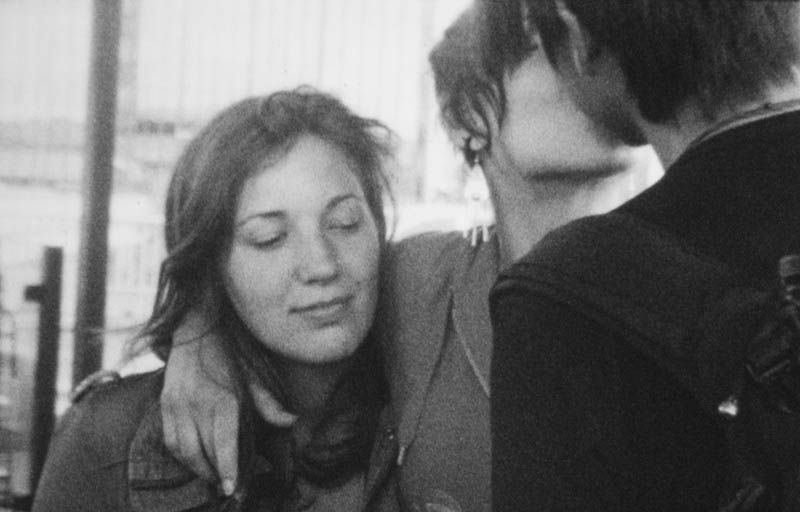
NL Josephine Ahnelt is een Weense filmmaker die in Nederland woont. Ze noemt zichzelf een ‘Futuristic Socio-Economic Ideas Enthusiast’ en heeft recentelijk haar laatste hand gelegd aan Winter Bees, een film over haar jaar in Japan. Ze werkt met super8 en 16mm en is medeoprichter Filmkoop Wien, een door DIY-kunstenaars gerund filmlaboratorium. Met trots kondigen we aan dat Josephine Ahnelt aanwezig is in Cavia bij de eerste vertoning van haar werk in Amsterdam. Meer info→
EN Josephine Ahnelt is a filmmaker from Vienna living in the Netherlands. She is a self-confessed Futuristic Socio-Economic Ideas Enthusiast and recently finished her film Winter Bees about her year in Japan, working with super8 and 16mm and co-founding a DIY-artist run film lab Filmkoop Wien. We are proud to have Josephine Ahnelt at Filmhuis Cavia for our first screening of her work here in Amsterdam. More info→
Zaterdag 14 december, 17:00
SPECIAL
Kurdish Lens - Rojava support screening
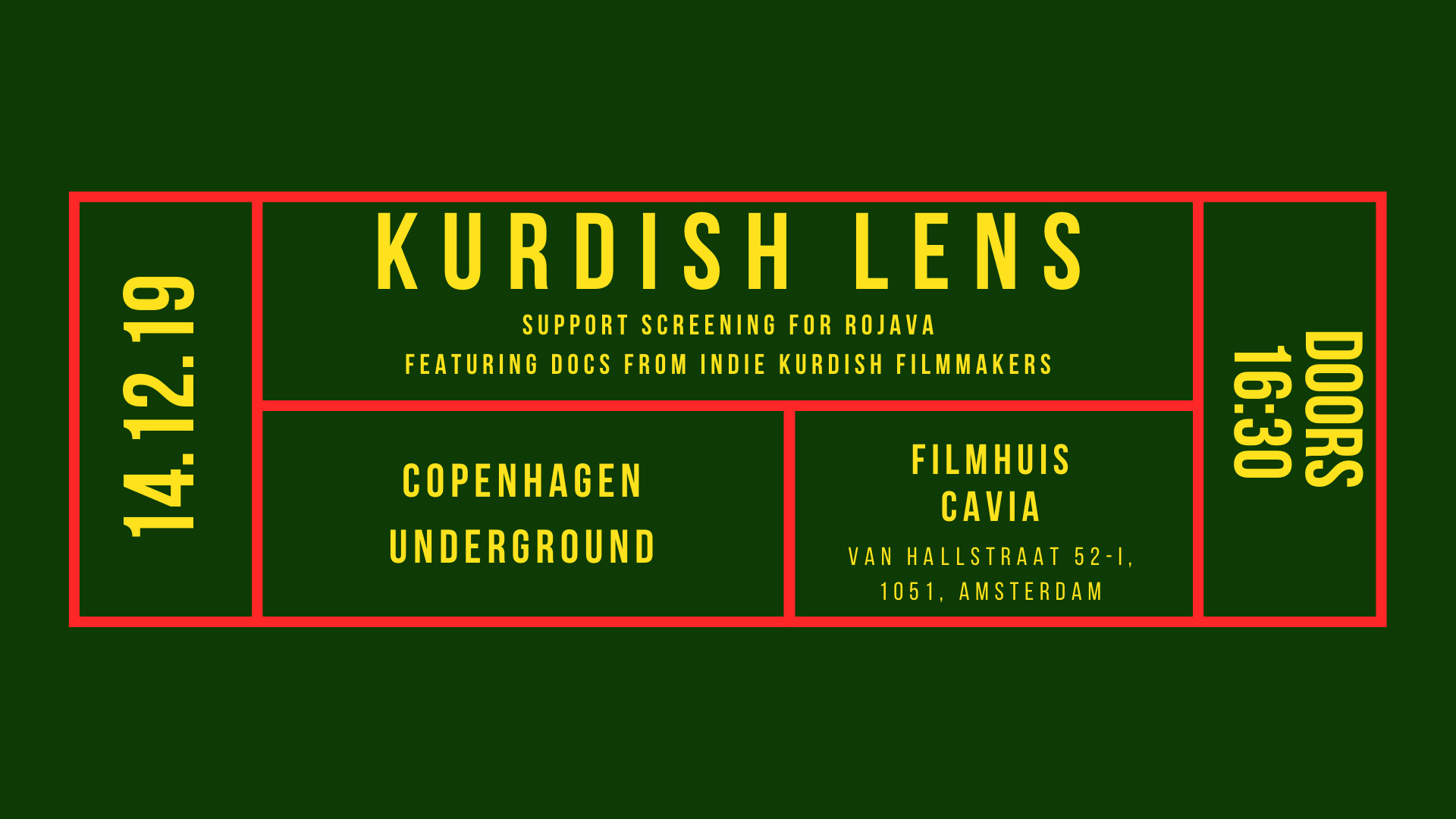
NL Copenhagen Underground presenteert samen met Filmhuis Cavia Kurdish Lens op 14 december. Het is een programma van vier korte documentaires van vier onafhankelijke Koerdische filmmakers, wiens verhalen de Koerdische strijd toont in thematische vormen van verzet en kunst. De toegang van elke vertoning is op donatiebasis en de totale opbrengst gaat naar de Koerdische Rode Halve Maan, die individuen en families bijstaat met medische hulp en onderdak na de Turkse inval van Rojava en de nog steeds bezig zijnde bezetting, agressie en onderdrukking. Meer info→
EN Copenhagen Underground presents Kurdish Lens with Filmhuis Cavia on 14 December. It's a program of four short documentaries from four independent Kurdish filmmakers whose stories depict the Kurdish struggle in thematic forms of resistance and art. The entrance to each screening is on a donation basis with 100% of the proceeds being given to the Kurdish Red Crescent, to assist individuals and families who are in need of medical support and shelter after the Turkish invasion of Rojava and its continued occupation and aggression. More info→
Zaterdag 14 december, 20:30
SPECIAL
Let’s go underground! Cult films by Babeth Mondini-VanLoo + Q&A
Babeth Mondini - VanLoo | 1978-1991 | NL/Verenigde Staten | 60’ | no subs
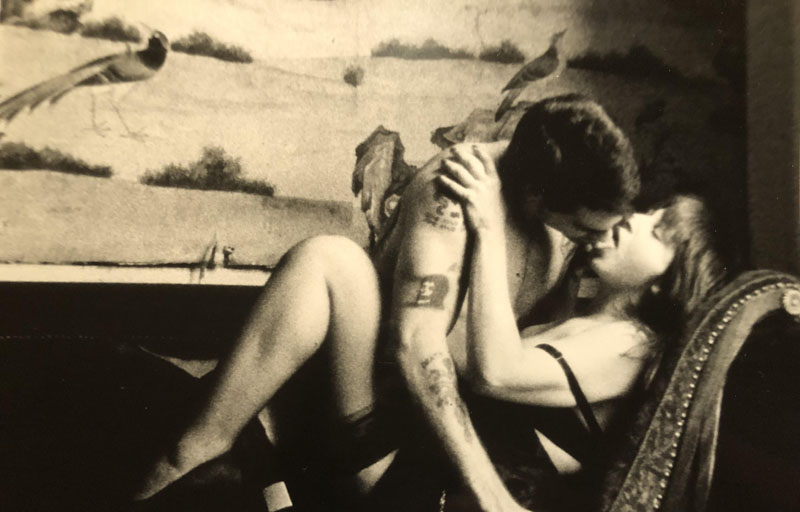
EN Babeth Mondini-VanLoo is one of those rare creatures able to walk through life with an incredible creative inner force which has the beautiful power to imbue everybody and everything on her path with humanism. In her chameleon-like approach to life and art, from her early punk days to her latest Buddhist involvements, she has evidently been inspired by Joseph Beuys credo: ‘no separation between art and life; life is art and art is life.’ This evening is a rare chance to encounter some of her earlier work. The selected films will shine a light on her close involvement with the punk scene, a rich and creative period initiated during her San Francisco years in the late 70’s while working for the magazine Search and Destroy. Armed with a Bolex, she began to film the concerts and interview the punk bands, a practice which continued back in Amsterdam in the 80’s and 90’s.
The films in the program have been recently preserved by the Eye Filmmuseum and will be introduced by curator Simona Monizza (Eye) and Babeth Mondini-VanLoo. More info→
Zondag 15 december, 19:30
CONTEMPORARY
Estado Impuro
Arturo Prins | 2018 | Argentinië/Spanje | 142' | EN subs
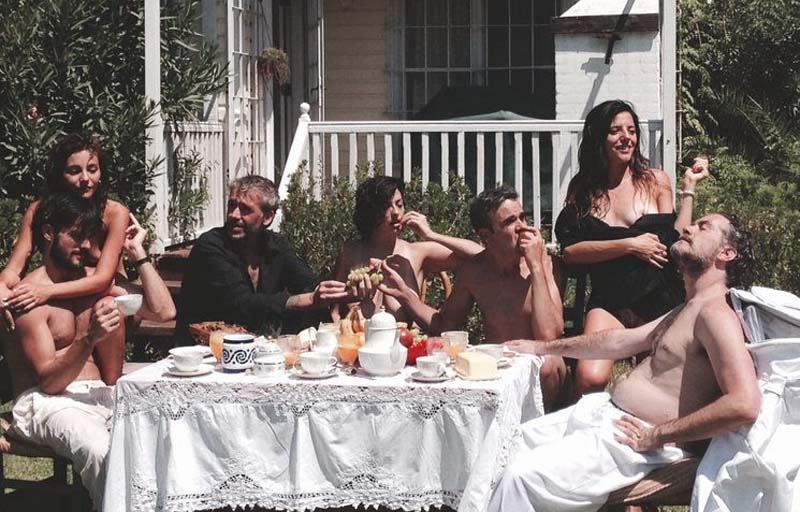
NL Twee conventionele koppels zijn uitgenodigd om het weekend bij hun vriend Daniel te verblijven. De maaltijd loopt gemoedelijk totdat Daniel de twistappel werpt: zijn jullie nog steeds echt gelukkig samen? Zouden jullie relaties niet profiteren van meer avontuur? Hebben jullie echt voor dit leven gekozen of was het van meet af aan geprogrammeerd? Wat is er mis met een open relatie? Wat volgt is een herkenbare en vermakelijke discussie waar alle lagen die de deconstructie van de monogamie kenmerken aan bod komen: angst en verlangen, ongemak en nieuwsgierigheid. De spanning wordt explosief wanneer de aantrekkelijke en provocatieve Alexandra en Jacobo zich bij de maaltijd aansluiten en hun intentie verkondigen om een orgie te houden met zijn allen. Estado Impuro is een intelligente en uitdagende film die Filmhuis Cavia op 15 december in première gaat vertonen.
EN Two conventional married couples are invited to spend the weekend in the house of their friend Daniel. The meal runs pleasantly until Daniel throws the apple of discord: are you still happy together? Wouldn’t you profit from some adventurousness? Did you really choose for this life or was it merely programmed from the start? What’s wrong about an open relationship? What follows is a recognizable and amusing discussion where all the layers that characterize the deconstruction of monogamy are expressed: fear and desire, awkwardness and curiosity. The tension becomes explosive when the attractive and provocative Alexandra and Jacobo join the meal and announce their intention to have an orgy all together. Estado Impuro is an intelligent and defiant film that Filmhuis Cavia will premiere on the 15th of December.
Donderdag 19 december, 20:30
CLASSIC
Clásicos Latinoamericanos: Wara Wara
José María Velasco Maidana | 1930 | Bolivia | 69’ | EN subs
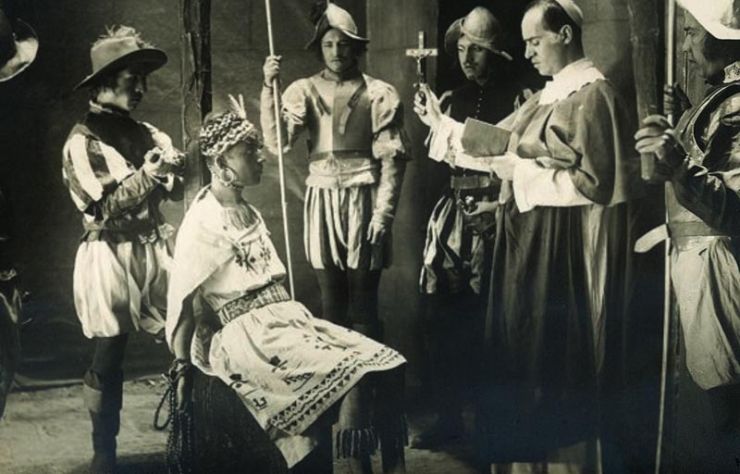
NL Dit verhaal over een frustrerende liefde
tussen een Aymara-prinses en een Spaanse conquistador is door Alfonso
Gumucio Dagron, de belangrijkste filmhistoricus van en over de
Boliviaanse cinema, beschreven als de
Intolerance (D.W.
Griffith, 1916) van Latijns-Amerika. De productie eiste enorme
inspanningen voor de constructie van de sets en de kostuums, terwijl de
technologie met welke deze film tot stand kwam spartaans te noemen is
met één camera en één Moviola. Verloren geacht in vijf decennia, komt
Wara Wara
naar ons heden om discussies over kolonialisme, gender en de
representatie van niet-criollo’s in de Latijns-Amerikaanse samenleving
te openen.
Clásicos Latinoamericanos is een
langaanhoudend programma dat spit in de Latijns-Amerikaanse cinema om te
reflecteren naar hoe deze zich door de jaren ontwikkeld heeft en welke
relatie het met Nederland heeft en had. Samen met speciale gasten en het
publiek graven we dieper in de consequente conflicten, problemen en
belangen van dit werelddeel.
EN This story of a frustrated love between an Aymara princess and a Spanish conquistador has been described as the Intolerance (D.W. Griffith, 1916) of Latin America by well-renowned historian of Bolivian cinema, Alfonso Gumucio Dagron. Its production demanded enormous efforts for the construction of elaborate sets and costumes, while the technology with which it was produced was simple: a camera and a Moviola. Lost for five decades, Wara Wara returns to our time to open up discussions on colonialism, gender, and the representation of the non-criollo in Latin American society.
Clásicos Latinoamericanos is a long-term program that explores Latin American cinema reflecting on the continent and its history, including its relationship with The Netherlands. We invite special guests to reflect, together with the audience, on both the cultural complexity and persistent conflicts of the continent.
